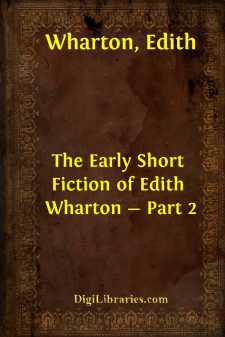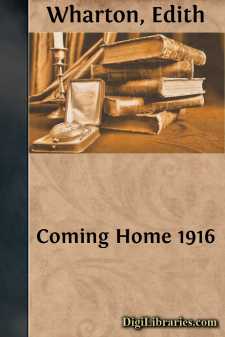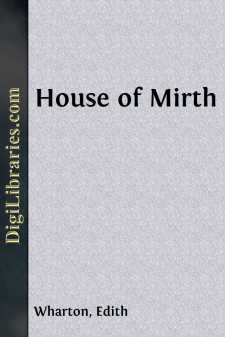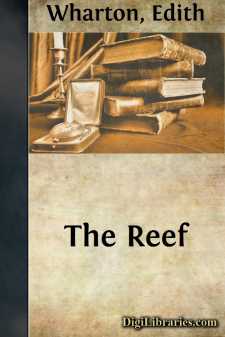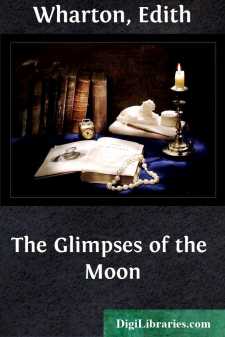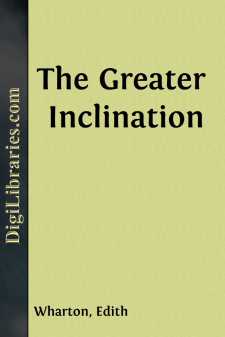Categories
- Antiques & Collectibles 13
- Architecture 36
- Art 48
- Bibles 22
- Biography & Autobiography 813
- Body, Mind & Spirit 142
- Business & Economics 28
- Children's Books 15
- Children's Fiction 12
- Computers 4
- Cooking 94
- Crafts & Hobbies 4
- Drama 346
- Education 46
- Family & Relationships 57
- Fiction 11829
- Games 19
- Gardening 17
- Health & Fitness 34
- History 1377
- House & Home 1
- Humor 147
- Juvenile Fiction 1873
- Juvenile Nonfiction 202
- Language Arts & Disciplines 88
- Law 16
- Literary Collections 686
- Literary Criticism 179
- Mathematics 13
- Medical 41
- Music 40
- Nature 179
- Non-Classifiable 1768
- Performing Arts 7
- Periodicals 1453
- Philosophy 64
- Photography 2
- Poetry 896
- Political Science 203
- Psychology 42
- Reference 154
- Religion 513
- Science 126
- Self-Help 84
- Social Science 81
- Sports & Recreation 34
- Study Aids 3
- Technology & Engineering 59
- Transportation 23
- Travel 463
- True Crime 29
The Early Short Fiction of Edith Wharton - Part 2
by: Edith Wharton
Categories:
Description:
Excerpt
"Oh, there IS one, of course, but you'll never know it."
The assertion, laughingly flung out six months earlier in a bright June garden, came back to Mary Boyne with a sharp perception of its latent significance as she stood, in the December dusk, waiting for the lamps to be brought into the library.
The words had been spoken by their friend Alida Stair, as they sat at tea on her lawn at Pangbourne, in reference to the very house of which the library in question was the central, the pivotal "feature." Mary Boyne and her husband, in quest of a country place in one of the southern or southwestern counties, had, on their arrival in England, carried their problem straight to Alida Stair, who had successfully solved it in her own case; but it was not until they had rejected, almost capriciously, several practical and judicious suggestions that she threw it out: "Well, there's Lyng, in Dorsetshire. It belongs to Hugo's cousins, and you can get it for a song."
The reasons she gave for its being obtainable on these terms—its remoteness from a station, its lack of electric light, hot-water pipes, and other vulgar necessities—were exactly those pleading in its favor with two romantic Americans perversely in search of the economic drawbacks which were associated, in their tradition, with unusual architectural felicities.
"I should never believe I was living in an old house unless I was thoroughly uncomfortable," Ned Boyne, the more extravagant of the two, had jocosely insisted; "the least hint of 'convenience' would make me think it had been bought out of an exhibition, with the pieces numbered, and set up again." And they had proceeded to enumerate, with humorous precision, their various suspicions and exactions, refusing to believe that the house their cousin recommended was REALLY Tudor till they learned it had no heating system, or that the village church was literally in the grounds till she assured them of the deplorable uncertainty of the water-supply.
"It's too uncomfortable to be true!" Edward Boyne had continued to exult as the avowal of each disadvantage was successively wrung from her; but he had cut short his rhapsody to ask, with a sudden relapse to distrust: "And the ghost? You've been concealing from us the fact that there is no ghost!"
Mary, at the moment, had laughed with him, yet almost with her laugh, being possessed of several sets of independent perceptions, had noted a sudden flatness of tone in Alida's answering hilarity.
"Oh, Dorsetshire's full of ghosts, you know."
"Yes, yes; but that won't do. I don't want to have to drive ten miles to see somebody else's ghost. I want one of my own on the premises. IS there a ghost at Lyng?"
His rejoinder had made Alida laugh again, and it was then that she had flung back tantalizingly: "Oh, there IS one, of course, but you'll never know it."
"Never know it?" Boyne pulled her up. "But what in the world constitutes a ghost except the fact of its being known for one?"
"I can't say. But that's the story."
"That there's a ghost, but that nobody knows it's a ghost?"
"Well—not till afterward, at any rate."
"Till afterward?"
"Not till long, long afterward."
"But if it's once been identified as an unearthly visitant, why hasn't its signalement been handed down in the family?...


